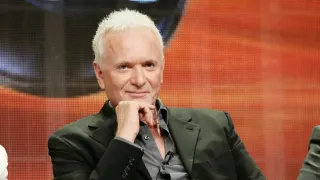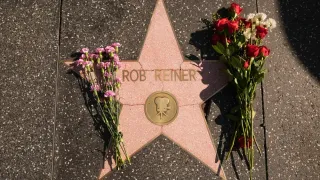Feb 28
Watch: Jessica Lange is Firm About NOT Going Back to 'AHS'
Kilian Melloy READ TIME: 1 MIN.
Jessica Lange was among the first troupe of actors to revisit "American Horror Story" season after season, but now the frequent Ryan Murphy collaborator says she's done with FX's long-running horror anthology series.
Indeed, when she was asked if there are plans to include her in the show's upcoming 13th season, Lange underscored just how much she's not returning to the show, letting loose with, "Oh, Christ, no!" 1428 Elm reported.
Lange's response burst forth "during a recent interview with Irish radio station SPIN 1038 while promoting her new movie 'Long Day's Journey Into Night,'" the horror-focused entertainment news site relayed.
"I haven't done it for more than 10 years, 12 years, so no, I'm not doing it," Lange – who last starred on the series in 2018 – told the station.
The interviewer cited a rumor that Season 13 will be the show's final bow, and asked if Lange would revisit the show if asked, but Lange remained undeterred. "No," she confirmed, ending the interview with a laugh.
In all, Lange was in 53 episodes of the series between its premiere in 2011 and its Season 8 storyline, titled "Apocalypse."
Lange has worked with Murphy on other projects as well, appearing in the two-season run of "The Politician" – a satire of U.S. politics – and in last year's critically acclaimed second season of "Feud," subtitled "Capote v. The Swans," about Truman Capote exile from high society after he published writings based on the lives of prominent New York women he had previously counted as friends.






